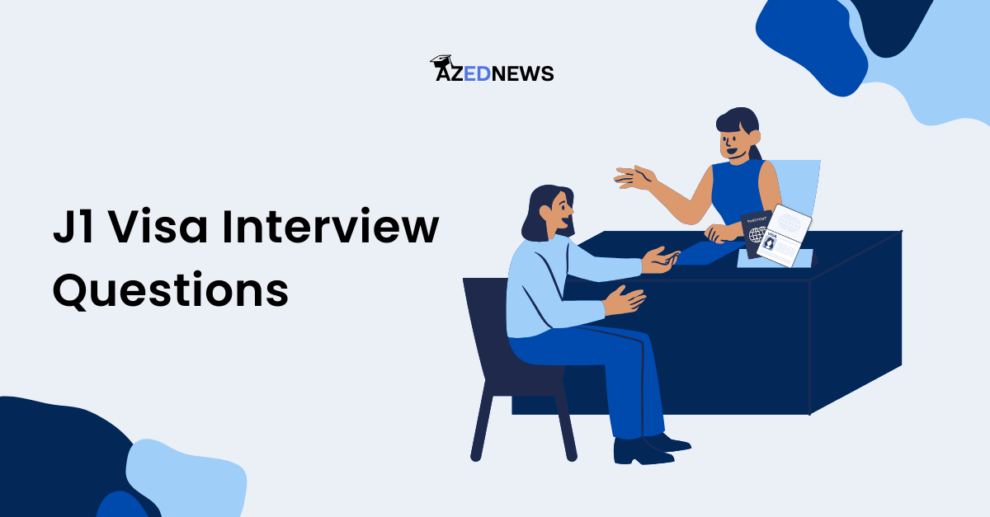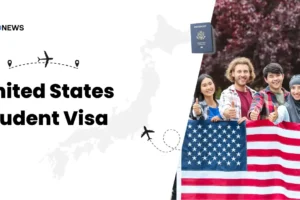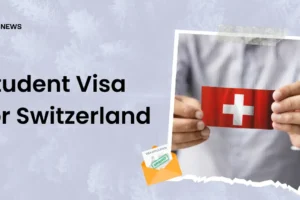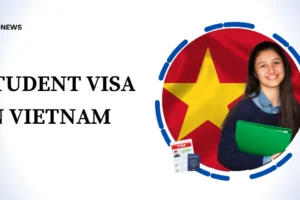If you are planning to participate in an exchange program in the United States, it is important to prepare for the J1 Visa Interview Questions. The J1 student visa is necessary for those who want to study in the US and requires attending an in-person interview at the US Embassy or consulate in your home country.
During the interview, the embassy officials will assess whether you meet the J1 student visa requirements and are ready to join the exchange program in the US. It is vital to be well-prepared for the interview to increase your chances of obtaining the J1 student visa.
Table of Contents
You must be thinking why J1 visa interviews hold so much value? The interview is important as it helps officials to determine if you are suitable for the exchange program and if you plan to return home afterward. They will ask about your program, financial support, and intentions after the program ends.
To prepare, you should check your eligibility and check common J1 visa interview questions. This will help you feel more confident and ready for your J1 visa interview. In this article, we will go over the types of J1 visa interview questions. Let’s get started.
How To Dress for Your J1 Visa Interview?
When you are getting ready for your J1 visa interview, you should think about what you will wear. There is no strict dress code. But it is important to make a good impression. You can consider what you would wear to a job interview in your field.
Some people opt for a formal business suit, which can look professional. But if that is not your style, do not worry! You can go for smart casual attire instead. The key is to choose something that makes you feel comfortable and confident.
What Documents Do You Need for the J1 Visa Interview?
When you go for your J1 visa interview, you must bring along some important documents. Here is what you will need:
- Your passport should be valid for at least six months beyond your planned departure date from the US.
- You will need to bring your DS-160 confirmation page. It shows that you have submitted your visa application online. Do not forget to bring the receipt. It confirms that you have paid the visa application processing fee.
- Bring a copy of your photo, just like the one you uploaded with your online application. It is also a good idea to have an extra copy with you.
- Your sponsor should provide you with Form DS-2019. It contains details about your exchange program. You should get familiar with this form because you may be asked questions about it during the interview.
- If your program falls under the J1 Trainee or Intern category, you will need to bring Form DS-7002.
While it is not compulsory, it is helpful to have these additional documents with you:
- A confirmation of your visa appointment
- Financial documents like bank statements
- Your academic transcript or related documents
Common Types of J1 Visa Interview Questions
When you are preparing for your J1 visa interview, it is helpful to think about the types of questions you might be asked. These questions cover common topics that often come up during the interview. Please remember, these are just examples. But they can give you an idea of what to expect.
There are seven categories most US J1 visa interview questions will be based on:
- Education
- Program
- Financial
- Family
- Employment
- Immigration History
- General
Let us take a look at J1 student visa interview questions and answers for each category.
1. Education
When you apply for a J1 exchange program, the interviewer might ask about your education to understand why you chose a particular J1 visa category.
Here are some questions they might ask:
- Which university did you attend or plan to attend?
- What are your grades like?
- What did you major in or plan to major in?
- Why did you choose your area of study?
- What were your standardized test scores (like GRE, GMAT, SAT, TOEFL)?
- Do you plan to study further?
2. Program
During your J1 visa interview, the questions you get can vary. But here are some common ones:
- What is the purpose of your program?
- What do you plan to do while you are in the United States?
- Any specific places you want to visit?
- Are you going to take part in any cultural activities?
- Where is your exchange program located?
- What is your housing arrangement going to be like?
- Why did you choose this particular state for your program?
- How many hours a week will you work during your program?
- What will your pay be?
- Does your employer have a worker’s compensation policy?
- What kind of tasks will you have during your internship or training?
3. Financial
During your interview, the interviewer might ask you about your finances. It is to ensure that you can cover your expenses while in the U.S. There are various ways to cover your education in the U.S. Some students are self-funded while others take education loan to study in the USA. Here are some common financial questions you might encounter:
- What do your parents do for a living?
- How much do you earn or how much does your family earn?
- Who is responsible for paying your education fees?
- Do you have any loans for your education?
- Can you provide a copy of your bank statement?
- Have you received any scholarships?
4. Family
The J1 visa is for temporary stays. It is not for permanent residence. The interviewer might ask about your family and personal ties to confirm you intend to go back to your home country after your program ends.
- Do you have any family members living in the United States?
- How many siblings do you have?
- Do you currently reside with your family?
- Can you tell me about your family?
- What occupations do your siblings and other immediate family members have?
- How many of your family members have completed college and are now employed in professional roles?
- Do you have any assets or investments back in your home country?
- Do you own any property there?
5. Employment
Questions about your current job can help the interviewer understand why you are traveling and what you plan to do after your exchange program.
- Where do you currently work?
- Do you intend to return to your job once your exchange program ends?
- What led you to leave your previous job?
- What are your career goals for the next few years?
6. Immigration History
During your visa interview, you might be asked about your immigration history and visa eligibility. Here are some questions you could expect:
- Do you have any relatives or friends living in the United States?
- Have you ever been to the United States before?
- Do you hold any other types of U.S. visas?
- What are your plans after your program ends?
- Are you planning to return home or are you considering seeking employment in the U.S.?
7. General
Here are some more questions that help the interviewer understand why you want to travel to the United States:
- Do you have any acquaintances in the United States?
- What are your plans if your visa is approved? And what if it is denied?
- What motivates you to join an exchange program?
Tips to Prepare for Your J1 Visa Interview
Here are some of the tips that will help you crack your J1 visa interview easily. Let’s have a look at them:
1. Practice
You should be ready to answer the common visa interview questions we talked about earlier. Practice with someone you trust, like a friend or family member. If you are practicing alone, you can write the questions on cards and record yourself asking and answering them on your phone.
Afterward, listen to your recording to see where you can improve. Do not worry about memorizing your answer. It is better to speak naturally during the real interview. Some of the questions might feel personal. But preparing ahead of time will help you feel more confident and avoid getting stuck during the interview.
2. Improve your English
When you practice for your interview, make sure to use English. Your interview will be in English language. Check your English answers with a friend or family member who speaks English well to see if you are pronouncing any tricky words correctly.
To get better at understanding spoken English, you can follow these steps:
- Try listening to English music or watching TV shows and movies in English.
- You can also find podcasts and online videos that teach English.
Please remember, having good English skills is important for joining the J1 Intern and Trainee programs.
3. Make a Good First Impression
When you are going for your interview, there are things you can do to make a good impression. Make sure you are on time, have all your documents ready, and dress neatly. During the interview, stay calm, show a positive attitude, and give your full attention.
4. Be Organized
You should gather all the documents you need for your interview and put them in a folder or binder. It is a good idea to use folders with pockets and labeled tabs to keep everything organized. This will help you find the documents you need quickly and avoid feeling stressed during the interview.
5. Know Your Program
During your interview, they will probably ask about the program you are joining. You should be ready to explain why you want to do it, what you hope to learn, and how it will help you in your future career back home.
6. Tell Reasons for Returning Home
Because the J1 visa is not for permanent stay, the interviewer wants to ensure you will go back home after your program. Be ready to talk about your plans for education or work in the future to show you intend to return.
7. Answer To The Point
During an interview, it is best not to talk too much. The interviewer wants to keep things quick and easy. Answer the questions directly and only share extra details if they ask for them.
8. Talk About Your Family
If you have a spouse or dependents, you should be ready to talk about whether they will come with you to the U.S. on J-2 visas or stay in your home country. If they are not coming with you, you should be able to explain how they will be financially supported while you are away.
9. Give The Interview Alone
When you go for your interview, it is best to go alone. Having friends or family with you can be distracting. If you are under 18 and might need help with financial questions, your parents can wait outside unless they are needed.
10. Maintain Honesty
During your interview, it is important to be truthful. Trying to say what you think the interviewer wants to hear can cause problems later on. So, just be honest during your visa interview as you would be under the oath.
Frequently Asked Questions
1. How much bank balance is required for a US J1 visa?
Here is the minimum funding required per year: For a J1 Visiting Student, you need $28,000. If you are bringing your spouse, you will need $14,000. For each child, you will need $7,000.
2. Is a J1 visa easy to get?
Getting approved for a J1 visa is usually easy. If you are a student coming for academic study, your visa can last for up to three years. For others, it might be just a 3-month stay. You can extend your stay based on your visa category.
3. What is the best answer to who is your sponsor?
If you are going to work in another country, your sponsor will be the company that hires you. If you are going there to study, your sponsor will be the school you will attend. And if it is for business, your sponsor will be the local company you will be working with.
4. How long does the J1 interview last?
When you have your interview with a consular officer, it is the final step after two other stages. This interview usually only takes a few minutes. Before the interview, the staff will gather and check your application details.
5. How can I impress my visa officer?
When you attend your visa interview, be sure to answer the questions honestly. Make sure you know about your study programs and future career plans. Keep in mind not to exaggerate your answers. It is best to give straightforward and concise responses.
Conclusion
When you go for your J1 visa interview, it is important to keep calm. Make sure you are ready for the J1 visa interview questions they might ask you. You should have all your papers and receipts organized so you can focus on answering the questions. Please remember, it is important to be truthful and open when you respond during the visa interview.












Add Comment